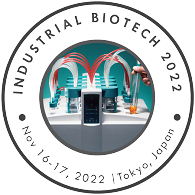Molecular Bio sensing , Bio robotics and Biomarkers
A biosensor is an analytical device, used for the detection of an analyte, that combines a biological component with a physicochemical detector. The sensitive biological element (e.g. tissue, microorganisms, organelles, cell receptors, enzymes, antibodies, nucleic acids, etc.) is a biologically derived material or biomimetic component that interacts (binds or recognizes) with the analyte under study. The biologically sensitive elements can also be created by biological engineering. The transducer or the detector element (works in a physicochemical way; optical, piezoelectric, electrochemical, etc.) transforms the signal resulting from the interaction of the analyte with the biological element into another signal (i.e., transduces) that can be more easily measured and quantified.
Biorobotics is a term that loosely covers the fields of cybernetics, bionics and even genetic engineering as a collective study. Biorobotics is often used to refer to a real subfield of robotics: studying how to make robots that emulate or simulate living biological organisms mechanically or even chemically. The term is also used in a reverse definition: making biological organisms as manipulatable and functional as robots, or making biological organisms as components of robots. In the latter sense, biorobotics can be referred to as a theoretical discipline of comprehensive genetic engineering in which organisms are created and designed by artificial means. The creation of life from non-living matter for example, would be biorobotics. The field is in its infancy and is sometimes known as synthetic biology or bionanotechnology.
Biomarkers that are used in clinical trials include those that are used as study endpoints, as well as those that are merely exploratory biomarkers. Exploratory biomarkers are used with the goal of arriving at a suitable panel that can subsequently be tested and validated, for use as endpoint in future clinical trials.
- Antibody/antigen interactions
- Artificial binding proteins
- Enzymatic interactions
- Nucleic acid interactions
- Affinity binding receptors
Related Conference of Molecular Bio sensing , Bio robotics and Biomarkers
Molecular Bio sensing , Bio robotics and Biomarkers Conference Speakers
Recommended Sessions
- Agriculture Biotechnology & Agro-forestry
- Animal Biotechnology and Marine Biotechnology
- Bio manufacturing, Bio refinery and Biofuels
- Biochemistry and Protein Engineering
- Bioinformatics, Systems Biology and Computational Biomedicine
- Biomaterials, Bio polymers & Biosensors
- Bioprocessing & Secondary Metabolites
- Biotechnology in Vaccine Production
- Environmental Biotechnology and Waste Water Management
- Enzyme Engineering and Drug Discovery
- Fermentation technology
- Genetic Engineering and CRISPR/Cas 9 Technology
- Industrial and Chemical Biotechnology
- Industrial Biotechnology and Nutrigenomics
- Microbial Biotechnology and Food Processing
- Molecular Bio sensing , Bio robotics and Biomarkers
- Molecular Biology
- Nano-biotechnology and Bio therapeutics
- Petroleum Biotechnology and Green chemicals
- Pharmaceutical and Medical Biotechnology
- Synthetic and Systems Biotechnology
Related Journals
Are you interested in
- 3D Printing in Microfluidics - Microfluidics 2026 (Germany)
- AI & Automation in Microfluidic Systems - Microfluidics 2026 (Germany)
- Biomedical Microfluidic Applications - Microfluidics 2026 (Germany)
- Clinical Translation & Commercialization - Microfluidics 2026 (Germany)
- Droplet-Based Microfluidics - Microfluidics 2026 (Germany)
- Lab-on-a-Chip Innovations - Microfluidics 2026 (Germany)
- Microfabrication & Soft Lithography - Microfluidics 2026 (Germany)
- Microfluidic Biosensors & Diagnostics - Microfluidics 2026 (Germany)
- Microfluidic Cell Culture Platforms - Microfluidics 2026 (Germany)
- Microfluidics for Drug Delivery - Microfluidics 2026 (Germany)
- Microreactors & Chemical Processing - Microfluidics 2026 (Germany)
- Nanofluidics & Molecular Transport - Microfluidics 2026 (Germany)
- Organ-on-Chip Engineering - Microfluidics 2026 (Germany)
- Point-of-Care Microdevices - Microfluidics 2026 (Germany)
- Single-Cell Microfluidic Analysis - Microfluidics 2026 (Germany)

